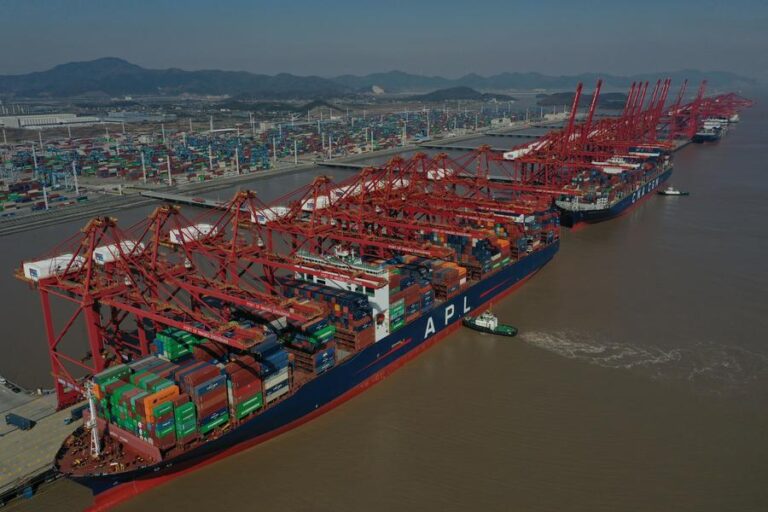HANGZHOU, May 27 (Xinhua) — The Ningbo-Zhoushan Port, the world’s busiest port in terms of cargo throughput, on Tuesday announced three initiatives it has undertaken with three major European ports — Hamburg and Wilhelmshaven in Germany, and Valencia in Spain — to construct green shipping corridors and advance low-carbon port cooperation between China and Europe.
The shipping industry handles roughly 80 percent of global trade and faces urgent pressure to curb emissions. Under the initiatives to decarbonize international shipping, the ports involved will work with shipping lines, cargo owners, energy providers, research institutions and other stakeholders to promote zero-carbon technology, clean fuels and smart management systems on designated routes.
Key actions include constructing and utilizing shore power infrastructure, optimizing freight distribution networks, adopting renewable energy solutions and scaling up clean fuel bunkering, with the goal of creating corridors with net-zero carbon emissions from starting port to terminal port.
The Ningbo-Zhoushan Port handles more than 300 container routes, including over 250 international routes, connecting over 600 ports in more than 200 countries and regions.
Strengthening the research and promotion of green and low-carbon technologies has always been a focus of this port, with 74 percent of its energy now coming from clean sources.
“We aim to work closely with ports and shipping companies under the Belt and Road Initiative to support the global green transformation of ports and shipping,” said Tao Chengbo, chairman of the Ningbo-Zhoushan Port Group. ■

